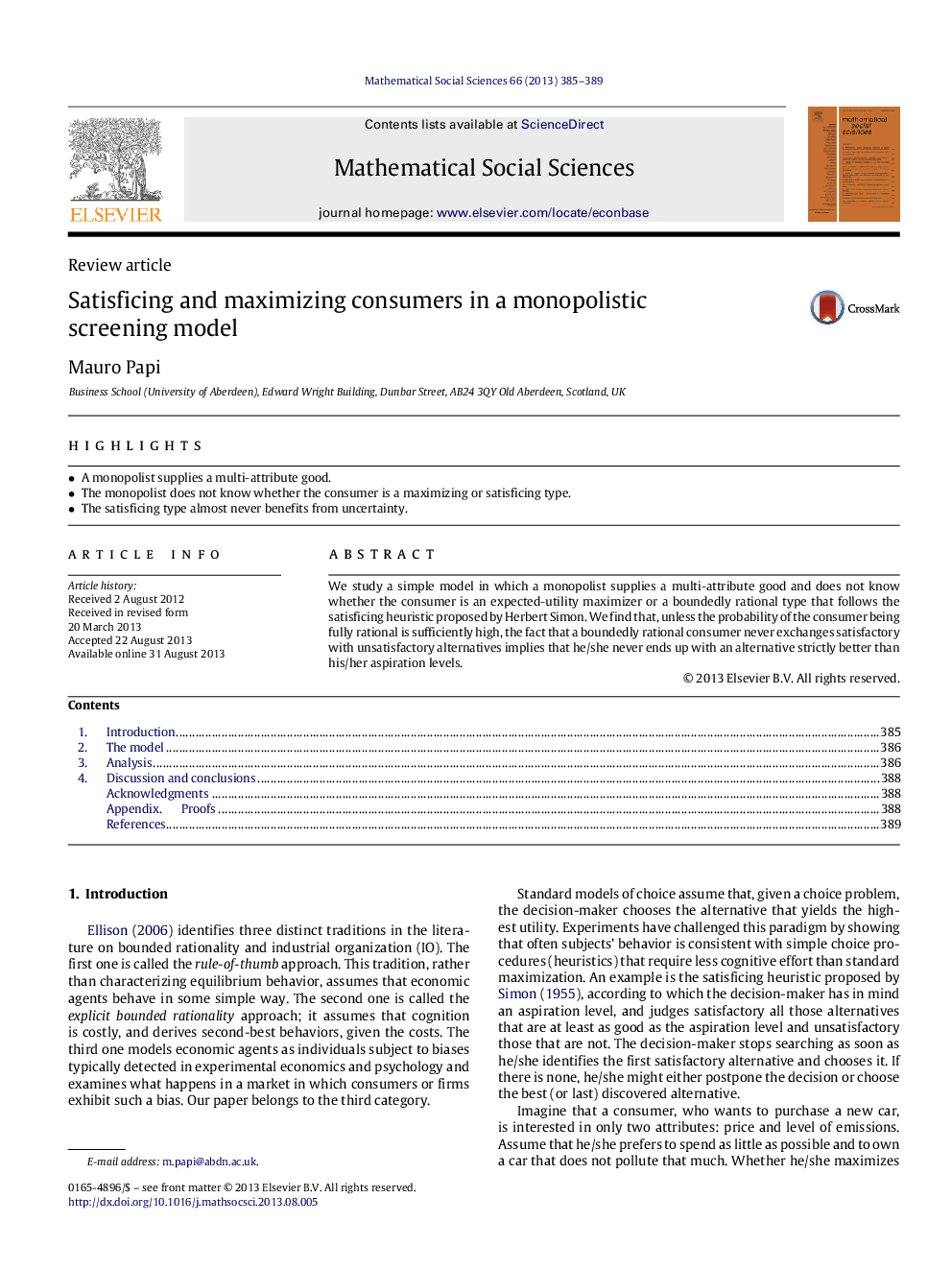| Article ID | Journal | Published Year | Pages | File Type |
|---|---|---|---|---|
| 10480306 | Mathematical Social Sciences | 2013 | 5 Pages |
Abstract
We study a simple model in which a monopolist supplies a multi-attribute good and does not know whether the consumer is an expected-utility maximizer or a boundedly rational type that follows the satisficing heuristic proposed by Herbert Simon. We find that, unless the probability of the consumer being fully rational is sufficiently high, the fact that a boundedly rational consumer never exchanges satisfactory with unsatisfactory alternatives implies that he/she never ends up with an alternative strictly better than his/her aspiration levels.
Related Topics
Physical Sciences and Engineering
Mathematics
Applied Mathematics
Authors
Mauro Papi,
